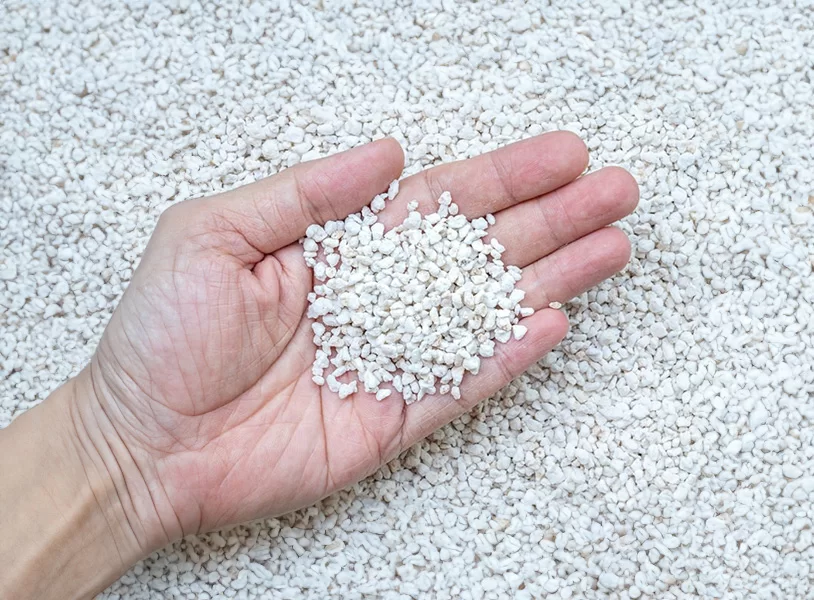
Perlite is an amorphous volcanic glass that has a relatively high water content, typically formed by the hydration of obsidian. It occurs naturally and has the unusual property of greatly expanding when heated sufficiently. It is an industrial mineral, suitable "as ceramic flux to lower the sintering temperature", and a commercial product useful for its low density after processing.
DetailsFILTER PERLITE Perlite provides maximum flow rate and clearness by the help of its notchy and clamped thousands of microscopic channels. Perlite doesn’t change filtered liquids taste, color and
CRYOGENIC PERLITE Cryogenic means lower heat values under -100 degrees. Cryogenic tanks are produced for usage in storing and transferring gases in liquid phase at -100 degrees. Isolation is important
APPLICATIONS IN CONSTRUCTION AND BUILDING SECTOR REFRACTORY BRICK PRODUCTION Perlite is used in production of bricks and soil mixtures as addition agent for vessels, cementation, heat processing and in
PERLITE IN TEXTILE SECTOR Perlite is inert and water insoluble matter because of its stable behavior. It is used in cleaning sector of textile as bleaching agent.It hasn’t got harmful effects on health
USAGE OF PERLITE IN AGRICULTURE - Perlite makes soil ventilated and improves its drainage with its %90 porosity and %60 ventilation porosity. - Perlite increases infiltration, decreases evaporation. Provides
Our company Polikrom Yapı Endüstri Kimya San. ve Tic. A.Ş. hasbeen producing and developing technological insulation products, waterinsulation products, decorative facework with its 39 years of experience (Since 1982)
Onthe other hand, all production activity is held at the highest quality withouttechnical staff in order to raise our product standards. Our company isconstantly focusing on research and development to develop new products. Inthis regard, the new generation coating system 100% natural Mantosıva heat insulation, sound insulation, waterproofing, fire insulation ecological system Facework is being produced according to World standards